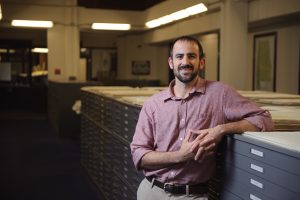City Managers
‘An efficient, effective local government’: Anniston Star – June 16
After nearly a year-and-a-half of tension between Jay Johnson and some Anniston City Council members, Johnson has joined a long line of city managers who left their position before the five-year mark … Richard Fording, a political science professor at The University of Alabama, said the average term for a city manager in the state is three to six years because of the stress that comes with the job.
Att.net – June 16
Wellbeing with Fire
Improving guest wellbeing with fire: Hotel Designs – June 17
Fire has always played an important part in our lives … Additionally, in a study for The University of Alabama, Dr. Lynn discovered that watching a fire, complete with sound effects, consistently lowered high blood pressure.
Fieldwork with Kids
Ways to juggle fieldwork with kids in tow: Nature – June 17
Nana Apenem Dagadu has taken her two young children to Senegal, Uganda and Ghana — all locations for her fieldwork as a reproductive- and sexual-health researcher … Shifting fieldwork closer to home can be another solution to accommodating childcare, says Christopher Lynn, an anthropologist at The University of Alabama in Tuscaloosa.
Theatre Tuscaloosa
Theatre Tuscaloosa presents “Grease”: Broadway World – June 18
Theatre Tuscaloosa will present its summer musical, Grease, July 12-21 in the Bean-Brown Theatre on the Martin Campus of Shelton State Community College. In this popular musical by Warren Casey and Jim Jacobs, Rydell High’s senior class of 1959 head “greaser” Danny Zuko (played by Nolan McKinney) and new “good girl” Sandy (played by 2018 Miss Alabama and University of Alabama student Callie Walker), unexpectedly meet again after a summer of magical “Summer Nights.”
Ancient Extinction
Troublesome trees: Spread of forests contributed to ancient extinction: Phys.org – June 19
Evidence from ancient rocks in north Alabama show the Earth’s first forest spread rapidly, likely contributing to a mass extinction of shallow marine life some 370 million years ago … Findings outlined in Scientific Reports by researchers from The University of Alabama and their international colleagues provide geochemical evidence for the oldest forests in southeastern North America, meaning the first forest spread across the barren land of a supercontinent millions of years earlier than previously shown.
ZME Science – June 20
Drug Interdiction
Staggering Philly drug bust shows traffickers turning to East Coast: Associated Press – June 19

If drug interdiction can be compared to a giant game of whack-a-mole, federal law enforcement officials delivered one mighty wallop this week when they raided a container ship at Philadelphia’s port and discovered a staggering amount of cocaine. . . . . “As soon as interdiction puts pressure on one place, it just pops up somewhere else. We’ve continually seen that,” said Nicholas Magliocca, a University of Alabama researcher who studies how traffickers adapt to interdiction. “As long as the demand is there, and there’s money to be made, traffickers are going to find a way.”
The Free Library – June 16
Mediacom – June 19
Savannah Morning News – June 19
Hot Springs Sentinel Record – June 19
News 13 (Orlando) – June 19
Toshiba Start – June 19
Yeshiva World – June 21
Canadian Shipper – June 21
Montgomery Advertiser – June 21
Freedom Bunker – June 23
Druid City Girls Media Camp
UA hosts Druid City Girls Media Camp: WVUA (Tuscaloosa) – June 19
The Druid City Girls media program is hosting an all-girls camp this week at The University of Alabama. The camp focuses on teaching them how to write, shoot, and edit short films. Students from UA are running the camp and wrote the curriculum for this week’s learning objectives.
Pythons
UA biological science professor talks about pythons: WVUA (Tuscaloosa) – June 20
Pythons are not poisonous and venomous. They are constrictors and squeeze their prey to death before ingestion. I spoke to University of Alabama biological sciences professor Stephen Secor about the creepy crawler who he says is more scared of us than we are of it.